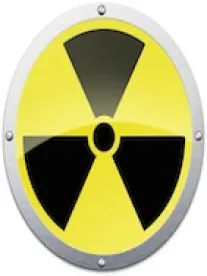The Aluminum Extrusions Fair Trade Committee (AEFTC), on January 9, 2018, submitted a petition to the U.S. Department of Commerce (DOC) requesting that the DOC initiate an anti-circumvention inquiry into aluminum extrusions from Vietnam and issue a country-wide circumvention determination. The AEFTC, which was the petitioner in the original 2010-11 investigations of aluminum extrusions from China, alleges that China Zhongwang Holdings Ltd. (Zhongwang) is circumventing existing antidumping and countervailing duty (AD/CVD) orders by shipping Chinese aluminum extrusions to its Vietnamese affiliate, Global Vietnam Aluminum Co., Ltd. (GVA), to be remelted and made into other aluminum extrusion products before exporting them to the United States to avoid duties. The AEFTC asks the DOC to determine that these imports from Vietnam are circumventing the AD/CVD orders on aluminum extrusions from China, and therefore these Vietnamese imports should be subject to AD/CVD duties just as if they had been produced in and directly imported from China.
Background
The petitioner alleges that Zhongwang refused to participate in the DOC’s original AD/CVD investigation and instead has attempted to evade the resulting AD/CVD duties through various schemes. According to the petitioner, Zhongwang has been disguising subject goods as non-subject goods by slightly changing the alloy, as well as shipping alleged aluminum “pallets” to the United States — which did not function as genuine pallets but instead were remelted and re-extruded in the United States — using an exclusion from the AD/CVD orders for “finished merchandise” and claiming that the imported pallets constituted finished merchandise.
According to the AEFTC, Zhongwang also shipped the pallets to Mexico, and then transshipped the pallets from Mexico to the United States. The petitioner alleges that Zhongwang’s current method of circumvention involves exporting extruded aluminum pallets from U.S.-based warehouses, where they were stockpiled in large numbers by PCA/Perfectus (another Zhongwang affiliate) during an earlier circumvention attempt, to Vietnam, where they are remelted, re-extruded, and re-imported into the United States. In addition, AEFTC alleges that Zhongwang has been sending aluminum extrusions directly from China to its affiliate GVA in Vietnam, and remelting the aluminum extrusions in Vietnam.
Petitioners allege that the latest scheme by Zhongwang constitutes illegal circumvention of the AD/CVD orders under two provisions of U.S. law: (1) a provision addressing situations where a product that would otherwise be subject to the AD/CVD orders is completed or processed in a third country through minor or insignificant processes; and (2) a provision that allows the DOC to include within the scope of an AD/CVD order merchandise that has undergone certain “minor alterations” that would otherwise remove it from the literal scope of an AD/CVD order.
In its anti-circumvention petition, the AEFTC requests not only that the DOC apply AD/CVD duties to aluminum extrusions remelted in Vietnam by GVA, but also that the DOC’s circumvention determination should apply to all Vietnamese aluminum extruders, based on its belief that GVA lacks sufficient capacity to re-extrude all pallets imported from Zhongwang, and therefore must be transferring surplus remelted billets to other Vietnamese extruders, which subsequently produce and export extrusions to the United States. By issuing a circumvention determination on a country-wide basis, according to the AEFTC, the DOC would avoid the need to issue individual rulings against each extruder.
Next Steps
The DOC will now examine the AEFTC’s petition and determine whether to initiate an anti-circumvention investigation. The DOC’s regulations require it to make a determination within 45 days on whether to initiate an anti-circumvention investigation, and U.S. law then allows the DOC up to 300 days after initiation to make a final determination.
If the DOC ultimately finds circumvention and agrees to the AEFTC’s request to make the remedy apply country-wide to Vietnam, this could result in heavy AD/CVD duties applied to all aluminum extrusions produced in Vietnam, regardless of producer, without the AEFTC having to file brand new AD/CVD petitions on aluminum extrusions from Vietnam, or having to prove that imports of Vietnamese extrusions are materially injuring (or threatening material injury to) the U.S. industry.





 />i
/>i

